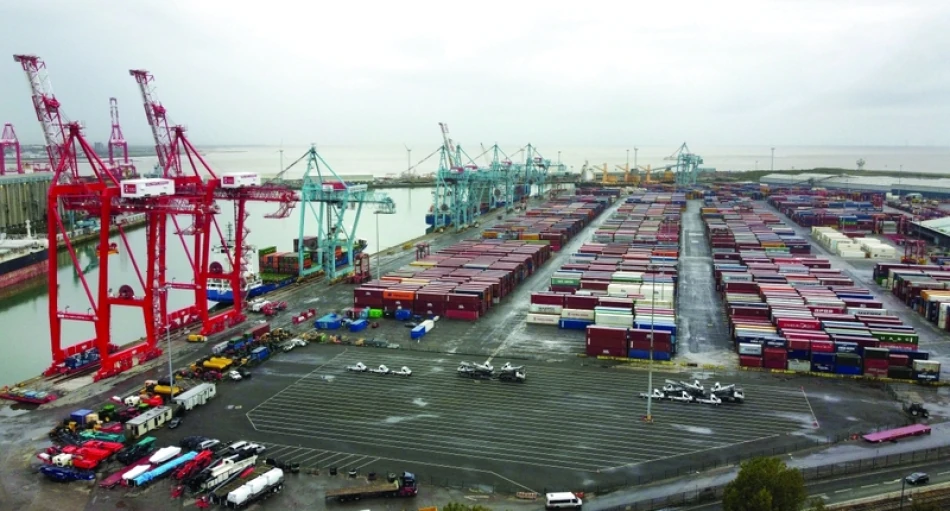
UK Officials Warn: Climate Crisis Poses National Security Threat to Britain
British intelligence chiefs have prepared a stark warning that climate breakdown and ecological collapse pose major threats to UK national security, potentially triggering food shortages and economic disaster within years. But the report, scheduled for release last Thursday at a London event, has been delayed amid concerns the Prime Minister's office may have blocked its publication.
The Joint Intelligence Committee report identifies the "destabilizing" impact of climate and nature crises as one of Britain's biggest security risks. Food supply chains are already under pressure, with some commodity prices rising sharply. Defense experts warn this could get much worse soon, given the UK's heavy reliance on imports.
Other industries will also face serious disruption from ecosystem collapse in places like the Amazon, plus the growing effects of extreme weather worldwide. Ministers were told these impacts aren't as distant as some have assumed - they're already being felt and will become more significant as temperatures rise beyond 1.5°C above pre-industrial levels.
The Guardian learned that the report, prepared by experts over several months, has been temporarily withheld. One source told the paper they fear it's being suppressed because the government doesn't want to confront the issues raised. This comes as the UK has cut foreign aid - officially called Overseas Development Assistance - which could help stabilize countries most at risk from climate crisis and avoid some of the warned impacts.
Another source familiar with the content said: "This is a very stark warning, and it's very clear that the national security implications are deeply concerning." Food disruption represents the biggest risk, as the UK imports a growing share of its food from abroad. Some comes from regions known for climate disaster risk and ecosystem breakdown. The fashion industry also faces mounting pressure, with many fabrics sourced from vulnerable areas.
Migration from countries worst hit by climate and biodiversity crises will affect society and the economy. Some of the most damaged nations will likely see governments fall and social unrest rise, creating political instability.
Officials have warned about climate crisis for two decades. The UK was first to force discussion of this issue in the UN Security Council in 2007. But little has been done since then to address the effects of climate and ecosystem breakdown on national security.
Defense experts are increasingly worried about the lack of action. Some have called for climate funding to be considered part of national security spending. Next month's UN COP30 climate summit in Brazil will likely show most countries are far behind on targets to cut greenhouse gas emissions significantly and prevent global temperatures exceeding 1.5°C above pre-industrial levels.
Prime Minister Keir Starmer was expected to attend COP30, where the UK could showcase some of the world's most ambitious targets and strong achievements in cutting emissions. But The Guardian learned some of his advisers want him to skip it, fearing the Reform Party would attack him for going.
A government spokesperson said: "This government is taking decisive action to strengthen UK food security and reverse nature's decline, as well as preparing for climate change impacts, including delivering £11.6 billion in international climate finance by the end of 25/26."
Former Conservative minister under Boris Johnson, Zac Goldsmith, said "addressing the nature crisis should have equal priority to the climate crisis as a defense issue." He added: "There are many nature supporters in the Labour Party, but with David Lammy's move from the Foreign Office it's very clear that nature has lost priority significantly, leaving us with a one-dimensional focus on carbon."
Goldsmith continued: "Starmer appears to be the first British Prime Minister not to attend COP to avoid being exposed for attending without concrete achievements and even abandoning existing commitments." He noted there's currently no indication the UK will support the Brazilian President's pioneering plan to reverse destruction of the world's major tropical forest basins, despite being built with significant British contribution.
Despite Britain's global leadership in ocean protection, it's now being blamed for blocking progress on Antarctic protection. Goldsmith said: "It now appears that a critically important report issued by the Joint Intelligence Committee on threats to UK security from the collapse of vital ecosystems has been swept under the carpet by a government embarrassed by its failure to provide any leadership on this issue."
Strong Climate Record
The UK has a solid track record of ambitious climate action. It hosted the UN's COP26 climate conference in Glasgow, where a plan to cut methane emissions was launched for the first time. During the conference, the UK announced its nationally determined contributions, targeting emission cuts under the Paris Agreement's 1.5°C commitment to reduce all greenhouse gas emissions by at least 81% by 2035 compared to 1990 levels.
The nationally determined contributions update aligns with Climate Change Committee recommendations. The UK has called on other countries to match its ambitions in addressing climate change. Britain was the first country to force discussion of this issue in the UN Security Council in 2007.
Most Viewed News

 Sara Khaled
Sara Khaled






